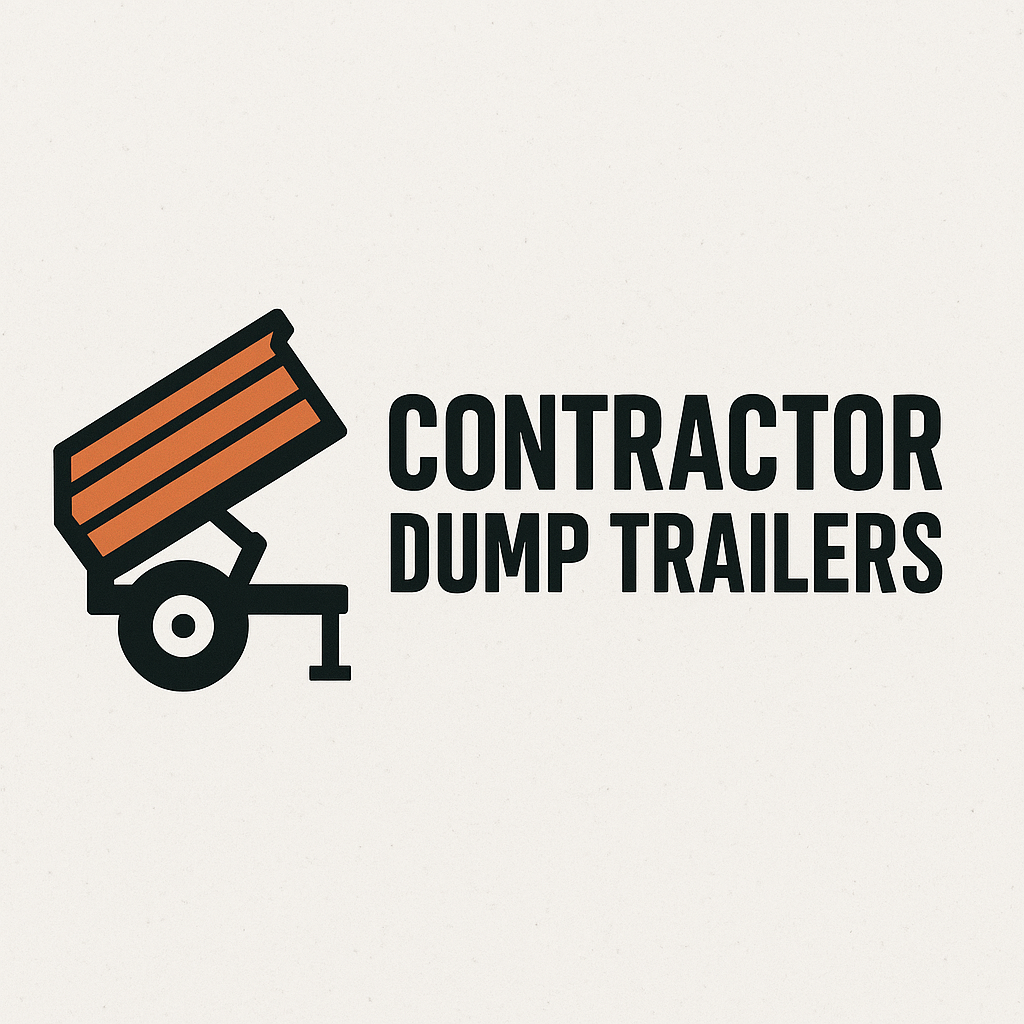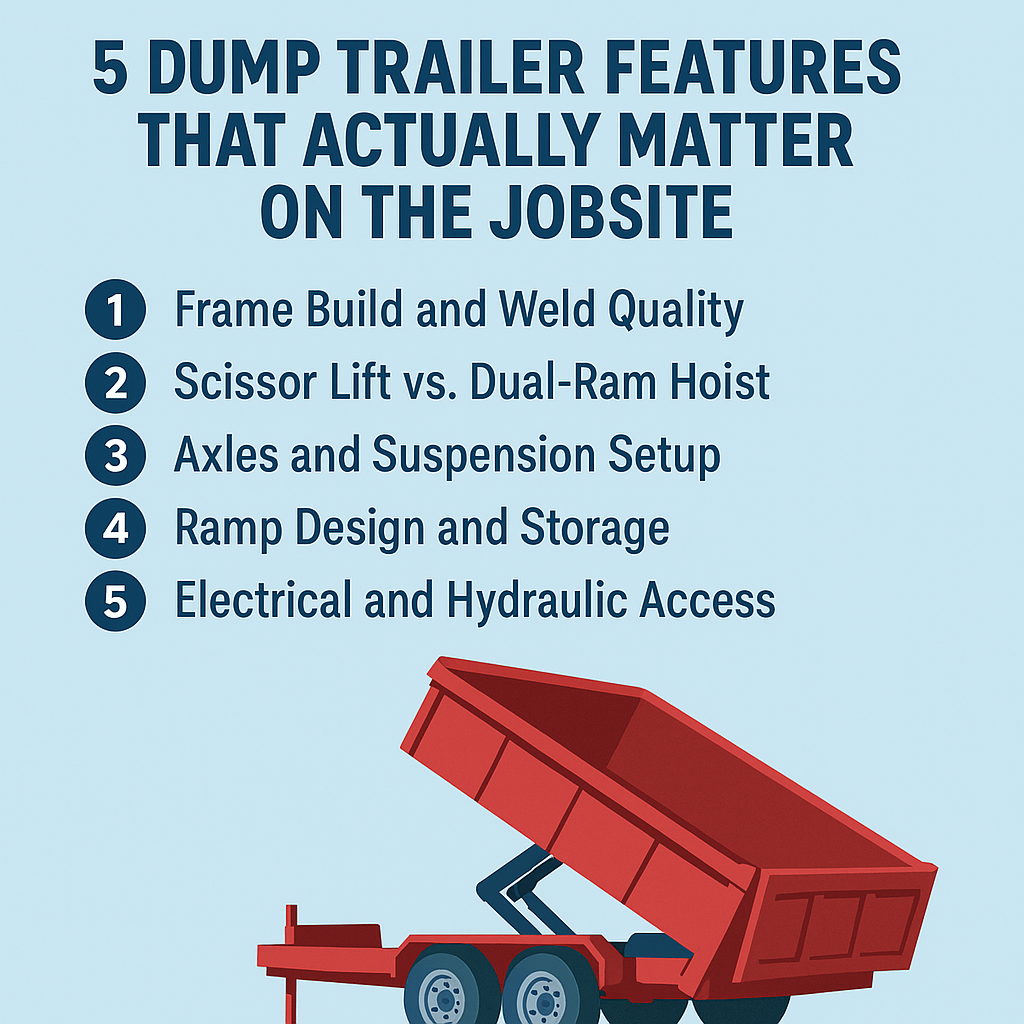When it comes to buying a dump trailer for daily contractor use, spec sheets don’t always tell the full story.
What looks good on paper can break down under pressure. On the flip side, some features that seem basic end up saving time and money every week.
This post breaks down five dump trailer features that actually make a difference once you’re on the jobsite.
1. Frame Build and Weld Quality
The structural frame is the backbone of any dump trailer.
Heavy loads, uneven terrain, and frequent use will test the integrity of your trailer fast.
Look for:
- 6” or 8” I-beam or tube frame
- Clean, continuous welds (not spotty or overfilled)
- Crossmembers placed 16” apart or closer
Flimsy builds often flex under load and start to crack at stress points over time.
2. Scissor Lift vs. Dual-Ram Hoist
Lift systems directly impact how efficiently you can dump material.
- Scissor lift systems offer a more vertical, stable lift. Better suited for uneven ground and heavy loads.
- Dual-ram systems are simpler and often cheaper, but can lift unevenly when loaded improperly.
Contractors doing regular debris or gravel hauls tend to prefer the scissor setup for control and performance.
3. Axles and Suspension Setup
Tandem 7K axles are common, but there’s more to it:
- Leaf spring suspension is reliable and affordable
- Torsion axles ride smoother but cost more to replace
- Greasable hubs and 10-ply or higher tires hold up better under daily use
Payload is important—but if the ride’s too rough or you’re blowing tires every season, you’ll lose more to downtime than weight.
4. Ramp Design and Storage
Loading equipment is only easy if your ramps are accessible and built to handle the load.
- Ramps stored under the bed save space
- D-rings or notches help with securing ramps during loading
- Look for steel grating or heavy flat bar for traction in muddy conditions
Also worth noting: the ramp angle. Shallow angles reduce stress on both the equipment and the operator.
5. Electrical and Hydraulic Access
Wiring and hydraulics are easy to ignore—until they fail.
Good trailers have:
- Enclosed wiring in conduit or loom
- Weatherproof battery boxes
- Easy access to hydraulic pumps and fuses
Less time crawling under your trailer means more time working.
Final Word
A trailer isn’t just something you tow—it’s part of your daily operation.
The more your gear supports your crew, the smoother the job runs.
If you want to compare models that check off these kinds of features, there’s a breakdown of contractor-grade dump trailers that’s worth a look. Specs are one thing—but build quality and layout are what matter long term.

